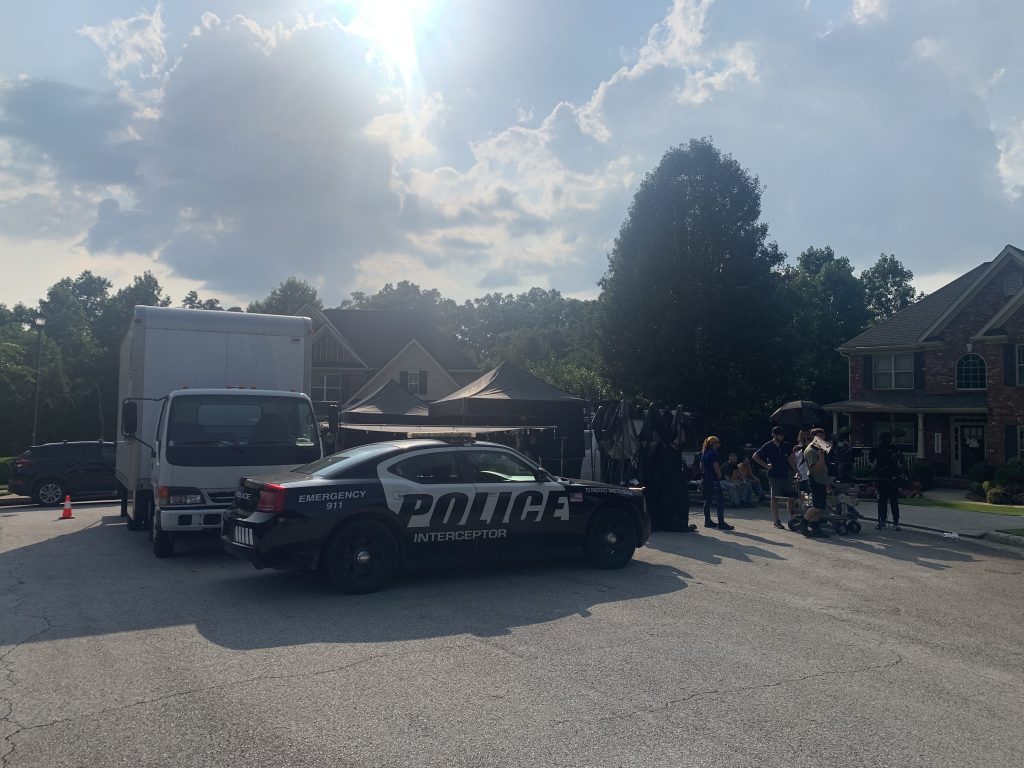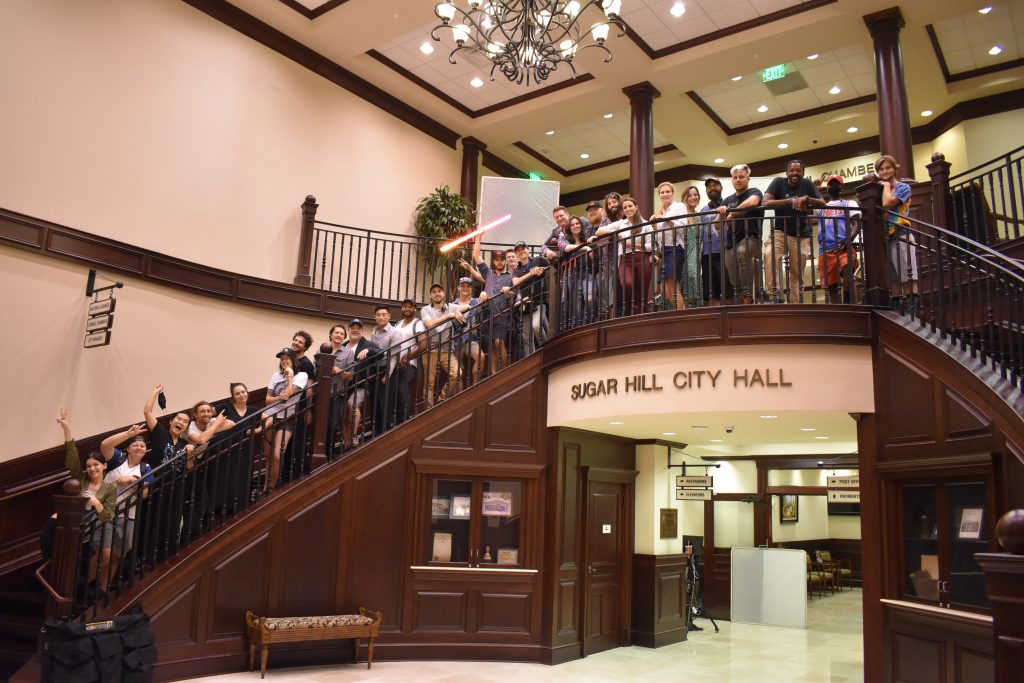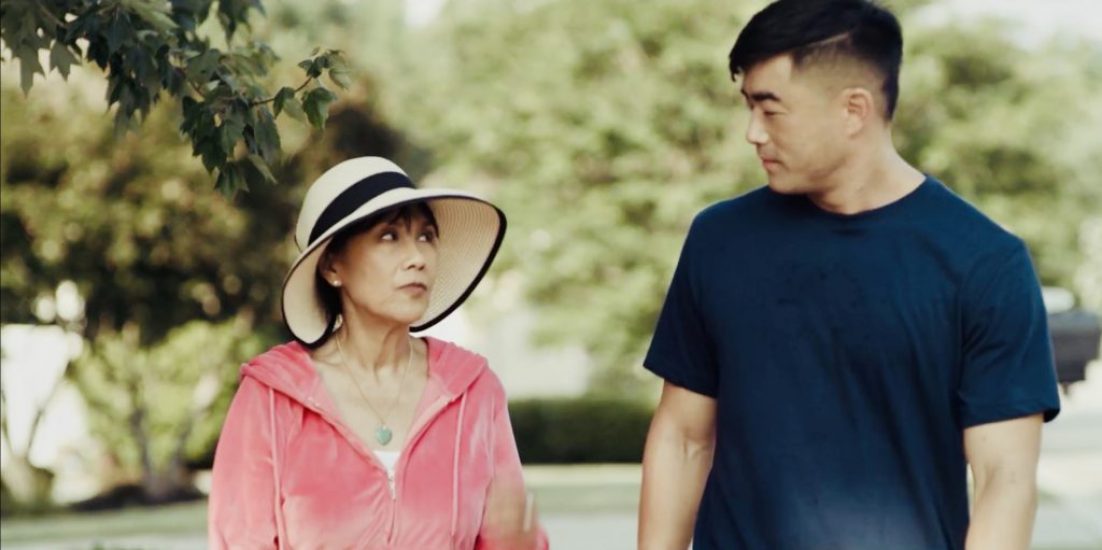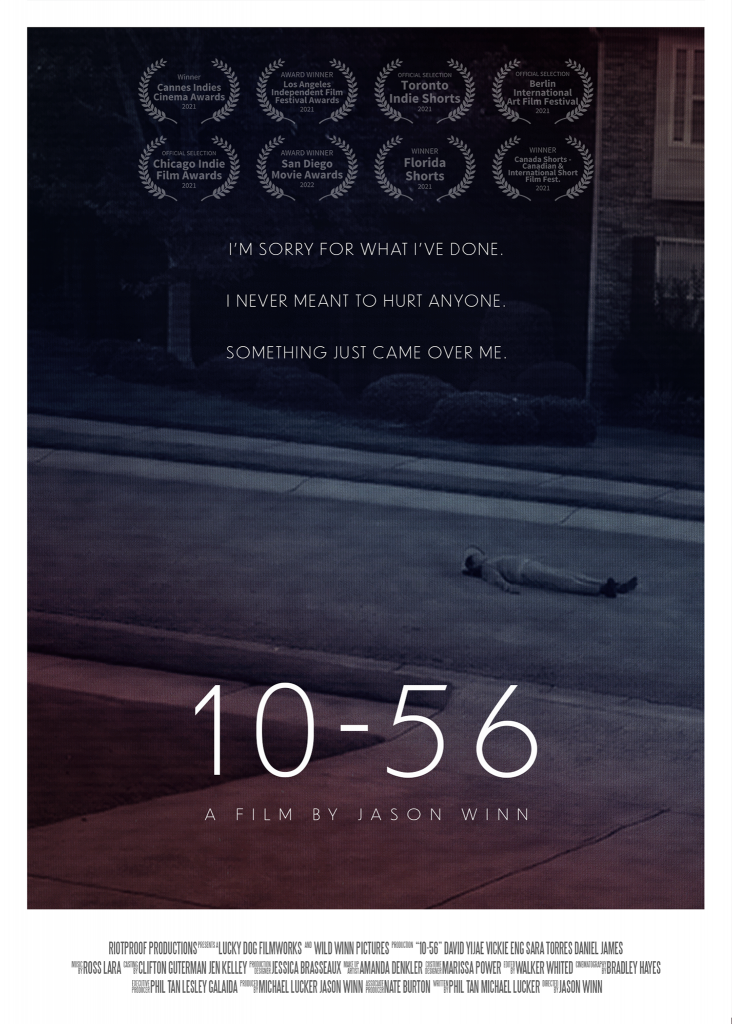The New ’10-56′ Delivers a Powerful and Poignant ‘Stop Asian Hate’ Themed Short Film to Festival Audiences
While visiting his sister in Malaysia last year during the country’s strict pandemic lockdown, Grammy-winning engineer Phil Tan, who has earned golden gramophones for his work with Mariah Carey, Rihanna and Ludacris, turned to a new hobby — screenwriting. The resulting script, later collaborated on with writer-producer Michael Lucker, is the powerful new short film “10-56.” Named for the police dispatch code for suicide, the shot-in-Georgia drama is an emotionally rich, suspenseful and affecting examination of our country’s troubling and rising violence against Asian-Americans, amid spiking suicide rates.
As Atlanta and the nation marks the first anniversary of the metro area’s spa murders on Wednesday, a senseless shooting spree that took eight lives (six of whom were Asian women), the film’s central themes resonate more than ever.
“America is supposed to be a melting pot but that isn’t necessarily so,” explained executive producer and co-screenwriter Phil Tan on a joint Zoom interview this week, joined by the film’s director Jason Winn and lead actors David Yijae and Vickie Eng. “I want the film to speak for itself. My hope is the film can promote better understanding.”
Since the film’s cast and crew are local, they all experienced the three metro area spa attacks as breaking news alerts on their phones while they unfolded in real time on the afternoon and evening of March 16, 2021.
In “10-56,” Yijae and Eng play a 35-year-old film composer still living with his devoutly religious mom (who, incidentally, practices her kickass kung fu exercise moves in their living room). Song and Mrs. Kim’s lives are changed forever when they confront two racist construction workers in their quiet suburban cul-de-sac (the film was shot entirely on location in the city of Sugar Hill in northern Gwinnett County).
Ironically, the film was already in pre-production when the Atlanta spa shootings occurred on March 16, 2021 but the film’s central theme already resonated with both Eng and Yijae.
“This was not new for me, unfortunately,” said Eng. “My dad was born here in the states. He’s first-generation Chinese. He met my mom when he was in the Army in China and there was so much prejudice when they came back to the states in the 1950s. So, I remember incidents that they experienced and then also, later, what I experienced as one of very few Asian people in school in Atlanta. When the spa shootings happened, it was just so tragic and angering that in this day and age, this is still going on.”
Having grown up in New York, where many of the recent incidents of anti Asian-American violence have targeted the elderly, the attacks were fresh in Yijae’s mind as he moved to metro Atlanta last year. “It’s been disappointing to watch how easily these incidents have been swept under the rug,” said Yijae. “It was crazy, especially when you hear [the Cherokee County Sheriff’s Office spokesperson] say things like [the shooter] was having a bad day’ and try to say it wasn’t a hate crime. How could they not see this person walked into these places with the intent to hurt specific people?”
Director Jason Winn, whose 2010 drama “The Fat Boy Chronicles” tackled high school bullying said yes to the project almost immediately after seeing the script. “As artists, I feel like it’s our duty to tell stories that not only entertain and educate but start a conversation. As a director, what drew me to this, was the challenge of telling the story in a compelling way that did justice to the script.”

And since he was living with his parents in Atlanta during the pandemic, David Yijae had the perfect scene partner to run lines with — his mom. “It was kind of funny,” said Yijae. “She asked me, ‘Is this about us?’ Because, like the mom character in the film, she’s a very religious woman. Song is pretty much the typical Asian-American son. You work your butt off, you do as you say, you do as you’re told and you take care of your parents. It felt like a role fit for me.”
The script also felt like a natural fit for Eng, who has made a career playing a vast array of characters, from a scary stint in “Venom” to being Alton Brown’s comedic foil on Food Network’s “Good Eats” to her role of Grace Wharton on the Netflix series “Sweet Magnolias,” shot in Covington, Georgia.
“The reason why this film is important for me is that no one has done anything like this,” explained Eng. “You have things like [the sitcom] ‘Fresh Off The Boat,’ which doesn’t touch on any of these issues and what’s going on. It just hit home. For me, it was the close relationship this mother had with her son and the loyalty there and the duty. That’s so strong in the Asian culture. It was true in my family and the script is very representative of mother/son relationships.”
The film was cast by Clifton Guterman, who is best known to Atlanta theatre-goers as the former associate artistic director at Theatrical Outfit, who now heads up the film and TV division of Big Picture Casting in the city.

Song and his mother’s complicated and comedic relationship is lovingly established in the film’s opening breakfast scene where Mrs. Kim is not-so-gently prying into Song’s nocturnal activities: “Were you out late last night? With the waitress?”
“The hostess, ma,” Song gently corrects.
“Maybe you should move out,” she counters. “You’re 35 years old and you’re still living with your mother. You’ll never meet a nice girl that way.”
With a modest indie short film budget, Winn and crew were looking for the ideal suburban setting for “10-56,” and found it, thanks to Mike and Vivian Taylor, the parents of London and Ian Taylor of the Atlanta pop act The Colour Negative, who were film students of Winn and Lucker’s at University of North Georgia.
“We needed a very specific look because of [Song’s] music studio so we ended up shooting at the Taylor’s,” explained Winn. “Then Mike sent out an email to the HOA and we were welcomed with open arms into the neighborhood. We were really grateful for that kind of community understanding, especially since huge movie studio dollar signs weren’t involved. They just wanted to get behind us and help us tell the story.”
In return, the City of Sugar Hill received a private cast and crew screening of “10-56” earlier this month, where the local courthouse has a guest starring role. The film, now in the middle of its festival run, has racked up awards at the Cannes Indies Cinema Awards, the Los Angeles Independent Film Festival Awards, the San Diego Movie Awards, Canadian International Short Film Festival and Florida Shorts and has already played in Berlin, Germany, Toronto and Chicago (inexplicably, the Atlanta Film Festival opted to pass on screening the topical, acclaimed Georgia-filmed production).

Due to most festivals being hybrid or entirely digital during the pandemic, the Sugar Hill screening was the first time the film was run in front of an audience. And while “10-56” may be a short, the film’s final minutes play like the finish of a taut thriller, complete with a major twist. “It was amazing to see the responses we got,” said Winn. “We got the laughs in the moments that were funny and we got the tears and the anger as well. This film affects you, it sits with you and it poses a lot of questions about our legal system. We want it to continue to resonate with you long after you finish seeing the film.”
Based on the response, Tan and Winn are now exploring developing the 20-minute short into a feature length project. Said Tan: “We’ll work together as a team on the story. The central theme will remain prejudice. But in the original script for the short there were three major themes: racism, depression and suicide. That all got a little heavy for a short so we simplified things a little. But we can expand on these themes if we make it into a feature.”
Currently, the filmmakers hope to officially premiere “10-56” in person at this year’s Los Angeles Film Festival in August if the pandemic continues to recede.
“A film like this is easy to share with the world because it’s a film that resonates with people,” said Winn. “After the premiere, we want to release it into the world to bring awareness to this awful situation that a lot of people still don’t know exists. That’s why we made it.”
Added Yijae: “If one person becomes more aware of what’s been happening, we’ve done our job. It starts with one person.”
You can follow updates on “10-56” via the film’s official website, Instagram, Facebook and Twitter accounts.

Richard L. Eldredge is the founder and editor in chief of Eldredge ATL. As a reporter for the Atlanta Journal-Constitution and Atlanta magazine, he has covered Atlanta since 1990.





